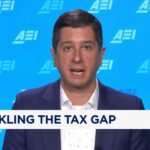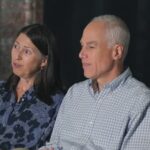
Sep 14, 2017 | Testimony
The opportunity for fundamental and comprehensive tax reform is before this Committee for the first time in many decades. As every Member of this Committee well knows, the tax code has frequently and sometimes significantly changed over the last 30 years, but not since 1986 has it been truly reformed in a manner that sought to broaden the base – that is, eliminate special deductions, credits, and exclusions– while lowering statutory tax rates. As Senators Hatch, Wyden, Roberts, and Grassley know firsthand, that legislative process was arduous and sometimes controversial, but the 1986 Tax Reform Act did result in a simpler income tax code with a broader tax base and significantly lower statutory tax rates.

Apr 27, 2016 | Testimony
S ESOPs, which are defined contribution retirement plans that allow employees to become owners, are increasingly popular in the US…. S ESOPs exist across a wide spectrum of industries and include a meaningful number of US employees. As the US seeks to rebound from a period of tepid productivity growth, tools such as S ESOPs can improve worker commitment, reduce worker turnover, and lower production costs.

Sep 29, 2014 | Testimony
The Maryland income tax scheme at issue here is as discriminatory as any tariff. Its discriminatory nature does not arise, as the Maryland Court of Appeals reasoned, from the risk that it may combine with some other state’s tax system to tax the same income twice.

Jun 8, 2012 | Testimony
As you carefully define in the document setting forth this hearing, “tax extenders” are a subset of the tax provisions extended by Title VII of the “Tax Relief, Unemployment Insurance Reauthorization, and Job Creation Act of 2010” (Public Law No. 111-312), as well as a number of other tax provisions that have expired or will expire this year.

Dec 21, 2011 | Testimony
As my testimony will describe, the recent improvement in payrolls and the unemployment rate are welcome news, but the plight of the long-term unemployed in the United States is considerable. The policies that have been executed since mid-2008 to foster an economic recovery have failed to deliver measurable results, and those most hurt by the current downturn are often the long-term unemployed. In fact, some policy actions taken by Congress and the Administration have likely exacerbated the duration of unemployment for some workers, the consequences of which are significant fiscal, economic, and social costs.

Jun 23, 2011 | Testimony
As the Subcommittee is well aware, the 2011 Social Security Trustees Report was released last month, and it projects that the combined Social Security trust funds will begin to be drawn down in 2023 and will be exhausted in 2036, one year earlier than projected in the 2010 Trustees Report.

















